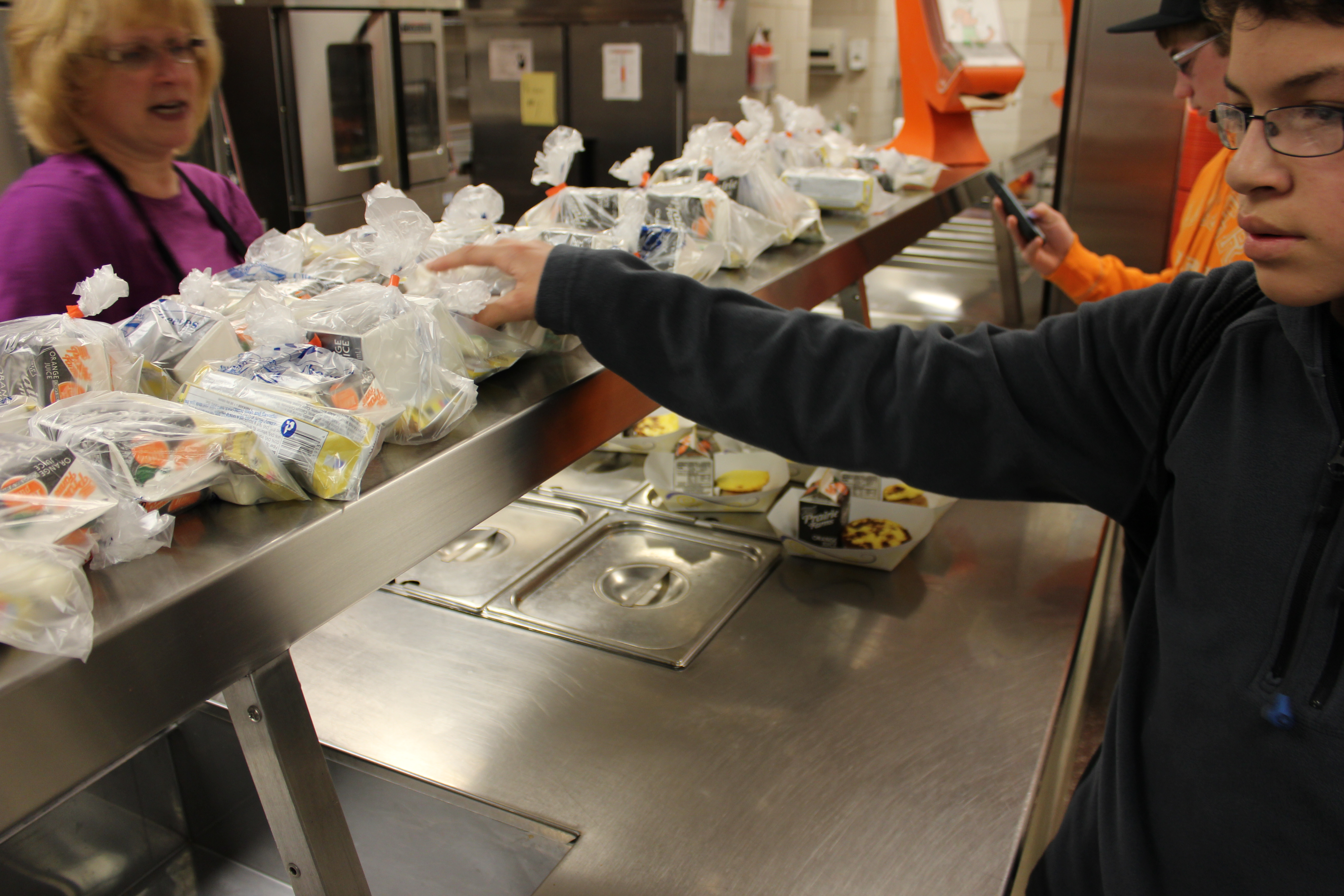
Operating as a well-oiled machine – students grab their breakfast on the way into school each morning and then head off to class.
Nourishing students from the inside out
For many students at Beardstown Junior/High School, the breakfast they receive through the National School Breakfast Program may be one of the only two nutritious meals they receive in a day. According to Principal Scott Riddle, for most of these kids, “If we don’t serve breakfast, they don’t get breakfast.” With over 73% of the school’s student population eligible for free or reduced-priced meals, the need is high and therefore “the goal,” says Riddle, “is to get food into the hands of the kids.”
With the help of a Rise and Shine Illinois grant, Beardstown was able to implement a Grab N Go service model for the 2014-2015 school year in order to make breakfast more accessible to all students and increase participation in the breakfast program. The children simply pick up a packaged hot or cold meal in the cafeteria or hallway as they enter school and eat together before class starts.

Principal Scott Riddle stands in front of an “inspirational” art installation created by the students at Beardstown Junior/High.
To start the Grab N Go program, the Junior/High School needed two Point of Service (POS) terminals, which they were able to purchase with funds from the Rise and Shine Illinois grant. An electronic pad collects student fingerprints as they pick up their meal and it automatically records and tracks the number of meals served in a reporting database. By reducing the amount of time students have to wait in line and the amount of paperwork for administrative staff, the new system makes serving breakfast a more efficient process and ultimately helps to feed more kids meals.
Since implementing the program, Riddle has seen two major improvements – a spike in attendance because kids are coming to school on time in order to get breakfast, and increased productivity in the classroom. “Teachers say you can see kids who are distracted in the classroom because they’re hungry and sleepy. With breakfast, they perform better, they’re more attentive.”
On average, about 520 of the 840 students in the Junior and High School are eating Grab N Go breakfast, a 122% increase over last year. In a county that has a food insecurity rate of over 23%, these meals serve a significant need. Nourishing kids from the inside out, the program not only ensures that the students are receiving a healthy meal but it provides them the opportunity to share and participate in the communal act of eating with one another. As Riddle points out, “Breakfast is about making sure your neighbor has something to eat. It’s teaching a community value.”


